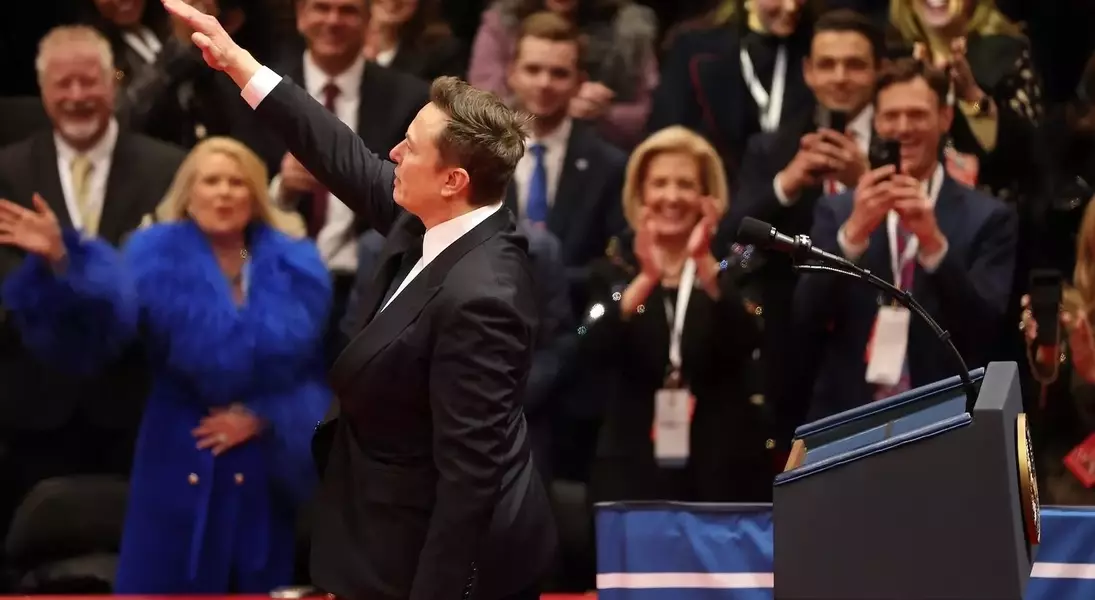Elon Musk's decision to poll his followers on social media about rehiring Marko Elez, a former software engineer involved with the DOGE project, has sparked intense debate. The young engineer resigned after being linked to inflammatory posts from a deleted account. Musk’s poll garnered significant attention, reflecting the growing controversy surrounding accountability and extremism on digital platforms.
Musk Faces Crucial Decision: Will He Uphold Integrity or Reward Controversy?
The Rise of Polarization on Digital Platforms
In recent months, the social media landscape has witnessed an alarming surge in divisive rhetoric. Since its acquisition by Elon Musk, the platform formerly known as Twitter has seen a dramatic shift in tone. Users have reported an increase in hate speech, extremist views, and outright denial of historical atrocities. This transformation has raised serious concerns about the direction of online discourse and the responsibilities of platform owners.The platform's evolution under Musk's leadership has been marked by controversial decisions that have drawn both support and criticism. Supporters argue that Musk's changes promote free speech, while detractors worry about the normalization of harmful content. The case of Marko Elez is emblematic of this broader issue. His resignation following the discovery of his past tweets highlights the challenges tech companies face in balancing freedom of expression with maintaining ethical standards.A Deep Dive into the Controversy Surrounding Marko Elez
Marko Elez, a 25-year-old software engineer, was working on the DOGE project when he became embroiled in controversy. His association with a now-deleted account containing inflammatory statements led to his resignation. The Wall Street Journal uncovered the connection, sparking widespread discussion about the implications of such content.Elez's comments, which included racist and extremist views, were particularly concerning given their potential impact on public discourse. While some defended Elez, arguing that youthful indiscretions should not define one's career, others emphasized the importance of holding individuals accountable for their words and actions. The debate underscores the complex interplay between personal responsibility and professional consequences in the digital age.Support and Backlash: The Role of Influential Voices
Vice President JD Vance publicly supported Elez's rehire, framing the situation as an overreaction to "stupid social media activity." Vance's stance reflects a broader narrative that seeks to minimize the severity of Elez's statements. However, critics argue that Vance's influence and power make him uniquely responsible for setting a higher standard of conduct.Jon Favreau, co-host of the liberal podcast Pod Save America, pointed out the hypocrisy in defending Elez while ignoring the harm caused by his statements. The exchange highlights the tension between personal loyalty and public accountability. As influential figures weigh in, the conversation around Elez's rehire becomes increasingly polarized, raising questions about the role of power and privilege in shaping public opinion.Musk's Influence and the Media Landscape
Elon Musk's involvement in the controversy has further complicated matters. His attacks on journalists who reported on Elez, particularly Katherine Long of the Wall Street Journal, reflect a pattern of undermining media credibility. Musk's efforts to discredit reporters have fueled concerns about the integrity of journalism and the spread of misinformation.Musk's actions extend beyond this specific incident, with reports suggesting his involvement in dismantling federal agencies like USAID. Critics argue that these moves are part of a broader agenda to reshape government structures, often at the expense of vital programs. The shutdown of the USAID website and attempts to halt funding underscore the far-reaching consequences of Musk's influence.DOGE's Expanding Reach and Its Impact on Federal Systems
The DOGE project, once focused on cryptocurrency, has expanded its scope under Musk's guidance. Reports indicate that members of the DOGE team have gained unprecedented access to sensitive government systems. Despite initial claims of limited access, sources reveal that these individuals possess administrator privileges, raising alarms about potential misuse of power.Tom Krause's appointment as financial assistant secretary of the Treasury Department exemplifies the growing influence of Musk's associates in critical government roles. This development has sparked fears about the erosion of checks and balances within federal institutions. As Krause takes charge, the possibility of disrupting essential payment systems looms large, highlighting the need for stringent oversight and accountability.You May Like

